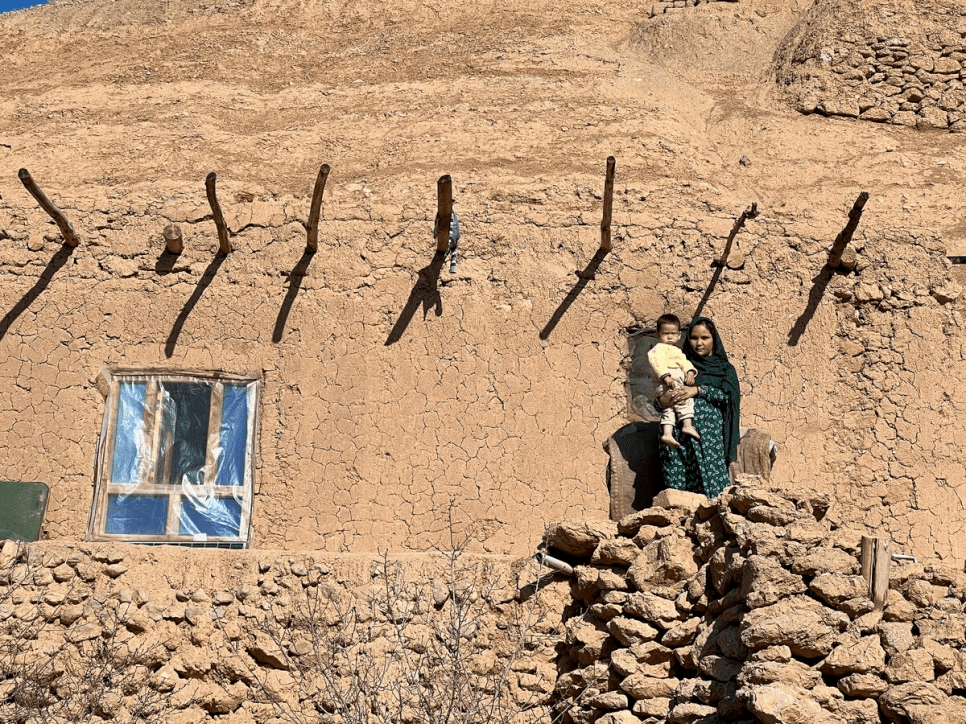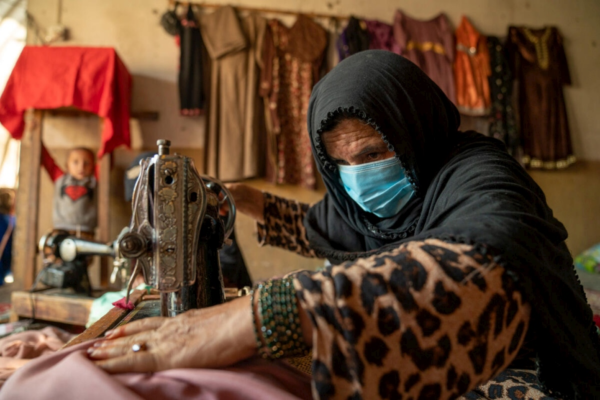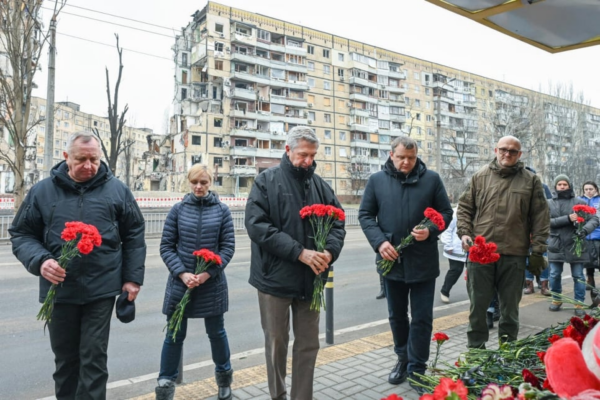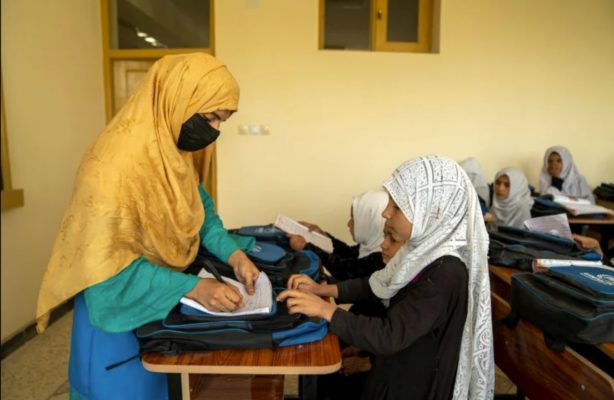
Bamyan province is the highest region in Afghanistan, and one of the coldest. But many families are struggling to afford food or fuel to heat their homes. © UNHCR/Caroline Gluck
For families living on the brink, cash and other support from UNHCR are a lifeline this winter.
She is not alone in having to make difficult decisions. People living in Bamyan province – the highest region in Afghanistan and one of the coldest – are used to harsh winters. But this year has been the coldest in over a decade, and the brutal weather has hit the poorest and most vulnerable like Fatima hard, coming as millions of Afghans are already suffering.
Aid agencies predict that a record 28.3 million people – some two-thirds of the population – will need humanitarian assistance in 2023, with 6 million of those already perilously close to famine.
With Afghanistan’s economy in freefall and food prices sky-rocketing, many desperate families have taken loans or borrowed from neighbours, and the slightest setback can plunge them deep into debt.
In the village of Surkhqul, 30-year-old mother-of-six Nekhbakhd and her family borrowed 600,000 Afghanis (US$6,730) for her father-in-law’s hospital treatment in Kabul before he died. They have also taken out a loan with a local bakery. Her husband is a casual labourer and often struggles to find work, especially during the lean winter season.
“I’m very worried because we have big loans and I don’t see how we can repay them,” she said.
The family received cash assistance from UNHCR two months ago, but their top priority was to buy food. “It meant we could eat. It also helped us buy heating materials like coal and wood. It was very important for us. But now the money is finished,” she said.
“I will never force my girls to marry young … but we might have to start thinking about sending the children to work, although right now they are too young.
“Now, my daughters collect animal manure to burn [in the stove] so we can stay warm. Sometimes we eat, but sometimes we go hungry and have to skip meals. We are struggling.”
“This winter is colder than other winters.”
UNHCR’s cash-based programmes can help the most vulnerable families avoid resorting to dangerous or harmful decisions; and give them the dignity and choice to prioritize their most urgent needs.
Mother-of-five Sara was two months pregnant when her husband died a year and a half ago. She now depends on charitable assistance and UNHCR for her family’s survival. Seasonal support provided by the agency meant that she was able to buy a traditional bukhari – a wood-burning stove, used for cooking and heating, and around which the whole family sleep at night in their one room.
“This winter is colder than other winters. But now we have this stove, we have charcoal and wood and we are all warm.
“If the help from UNHCR hadn’t arrived it would be so difficult. I would have to beg from others in the community. UNHCR help is a lifeline,” she said.
*Name changed for protection reasons
Originally published by UNHCR on 02 February 2023.





